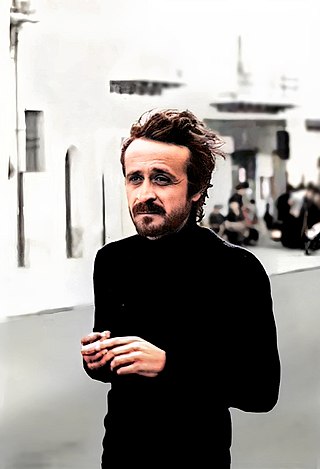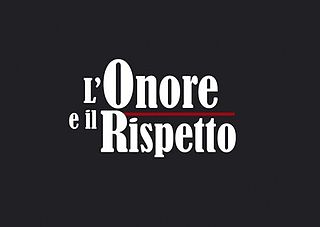Synopsis
Pasqualino, on the day of his birthday, hears the voice of his father telling: "Now that you are thirteen and are a man, you finally can stay with the animals". And so it will be; from that day Pasqualino will spend weeks in the country to tend oxen and goats. The games with its friends along the roads of Burgio are a distant memory, and what he most suffers is the separation from 12-year-old Saro (his brother) and from grandfather Pasquale whose name he inherited.
Saro, born a paraplegic, needs of a lot of cares and expenses that worsen a very difficult economic situation.
Pasqualino seems to accept this destiny but in his heart hopes to emigrate and to build a worthier existence. The present condition that makes him a sort of guard (to the sister when she is with her fiancé, to the sick brother because and sick, to the animals) becomes unbearable, and he wishes to go away.
He often meets with Vito, a young shepherd, and shares with him peaceful or awkward moments of his life in the countryside. One day Vito, for carelessness, loses a sheep, the owners infuriated hits the boy, who has a hemorrhage and dies. the body is thrown in a lake to escape justice simulating a death by accident. Pasqualino, eyewitness of the facts, is scared and plans to flee. Driven by this desire of escape he begins to think about the difficulty of the plan.
First of all, he needs new clothing, different from the simple shepherd dress he wears. He remembers that his father had promised him a suit and he had chosen a "doppio petto" (double chest suit). Now this garment represents the freedom and he cannot wait to wear it.
When the father discovers the boy and his brother playing with one of his old suits, he sends them back to the country for the next three months. Now work appears harder than ever because the dream of escape has almost vanished. But a surprise restores hope: Pasqualino's grandfather has persuaded the tailor to go up there, to measure on the incredulous boy his new double chest suit. It will be ready in two weeks. The moment of freedom is close, the last days seem never to go by, the time seems to have stopped.
On the eve of his last work day, an event upsets forever the life of Pasqualino: a peasant warns him to return urgently home. He runs towards the house, meeting people that express by gestures a distressing message of death. When he arrives inside his house, he sees his brother Saro, dead, wearing a double-breasted suit.

Michael Corleone is a fictional character and the protagonist of Mario Puzo's 1969 novel The Godfather. In the three Godfather films, directed by Francis Ford Coppola, Michael was portrayed by Al Pacino, for which he was twice-nominated for Academy Awards. Michael is the youngest son of Vito Corleone, a Sicilian immigrant who builds a Mafia empire. Upon his father's death, Michael succeeds him as the don of the Corleone crime family.

Vito Corleone is a fictional character in Mario Puzo's 1969 novel The Godfather and in the first two of Francis Ford Coppola's film trilogy. Vito is originally portrayed by Marlon Brando in the 1972 film The Godfather, and later by Oreste Baldini as a boy and by Robert De Niro as a young man in The Godfather Part II (1974). He is an orphaned Sicilian immigrant who builds a Mafia empire.

The Morello crime family was one of the earliest crime families to be established in the United States and New York City. The Morellos were based in Manhattan's Italian Harlem and eventually gained dominance in the Italian underworld by defeating the rival Neapolitan Camorra of Brooklyn. They were the predecessors of what eventually became known as the Genovese crime family.

The Sicilian is a novel by American author Mario Puzo. Published in 1984 by Random House Publishing Group (ISBN 0-671-43564-7), it is based on the life of Sicilian bandit Salvatore Giuliano. It is set in the same universe as Puzo's most famous work, The Godfather (1969), and contains characters from The Godfather. It is regarded as The Godfather's literary sequel and is the second book in The Godfather novel series. It was adapted into a film in 1987, though all Godfather references were removed for copyright reasons in the film adaptation.

Vito Cascio Ferro or Vito Cascioferro, also known as Don Vito, was an Italian criminal who was a prominent member of the Sicilian Mafia. He also operated for several years in the United States. He is often depicted as the "boss of bosses", although such a position does not exist in the loose structure of Cosa Nostra in Sicily.

Mafia!, also known as Jane Austen's Mafia!, is a 1998 American crime comedy film directed by Jim Abrahams and starring Jay Mohr, Lloyd Bridges, Olympia Dukakis and Christina Applegate.
Anthony Vito "Tony" Corleone is a fictional character in The Godfather film trilogy directed by Francis Ford Coppola. He is the son of Michael Corleone and Kay Adams, and the older brother of Mary Corleone. While Tony was not a major character in the first two films, major events in his life were the backdrop of key parts of the second film, and his relationship with his father is a plot point in the third film.

Family Business is a 1989 American neo noir crime film directed by Sidney Lumet, with a screenplay by Vincent Patrick, based on his novel. It stars Sean Connery, Dustin Hoffman, and Matthew Broderick.

Giuseppe "Peppino" Impastato, was an Italian political activist who opposed the Mafia, which ordered his murder in 1978.

Don Fanucci is a fictional character appearing in Mario Puzo's 1969 novel The Godfather and the 1974 film The Godfather Part II, a sequel to the 1972 film version of Puzo's novel. Fanucci is portrayed by Gastone Moschin and is based on the personality of Ignazio Lupo, a real-life Black Hand figure. While ostensibly Sicilian, Don Fanucci dresses and carries himself in a manner reminiscent of the mostly Neapolitan guappo criminal subculture.

Nicasius of Sicily is venerated as a martyr in the Catholic Church.

Tommaso "The Ox" Petto was a New York mobster and leading hitman in the Morello crime family during the early 1900s.

Giuseppe Ferlito is an Italian film director. He was born on 24 October 1954 in the Sicilian town of Burgio.

Vito D'Anna was an Italian painter, considered the most prominent painter of Palermitan rococo and one of the most important artists of Sicily.

The Clockwork Three is a 2010 novel by American author Matthew J. Kirby. Set in a fictional coastal city in the late nineteenth century, it follows three children: Giuseppe, Hannah, and Frederick who work to solve each other's problems.

L'onore e il Rispetto is an Italian crime drama broadcast on Canale 5. It is composed of four seasons of six episodes each: the first aired in 2006, the second in 2009 and the third in 2012. The fourth season, initially scheduled for the first months of the year, was broadcast from 1 September 2015. Even before the airing of the said season, Mediaset renewed the series for a fifth season.
Sicilian orthography uses a variant of the Latin alphabet consisting of 23 or more letters to write the Sicilian language.
This is a list of organized crime in the 1900s, arranged chronologically.
This page is based on this
Wikipedia article Text is available under the
CC BY-SA 4.0 license; additional terms may apply.
Images, videos and audio are available under their respective licenses.














